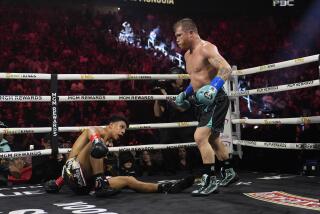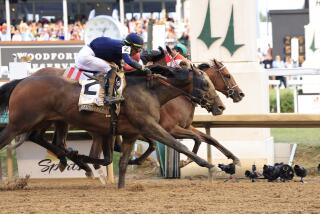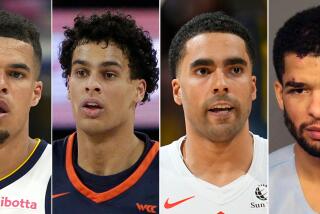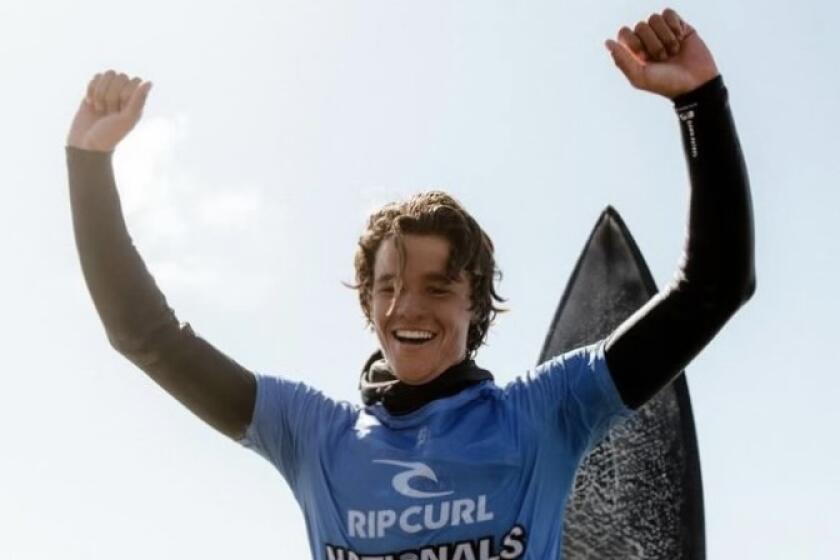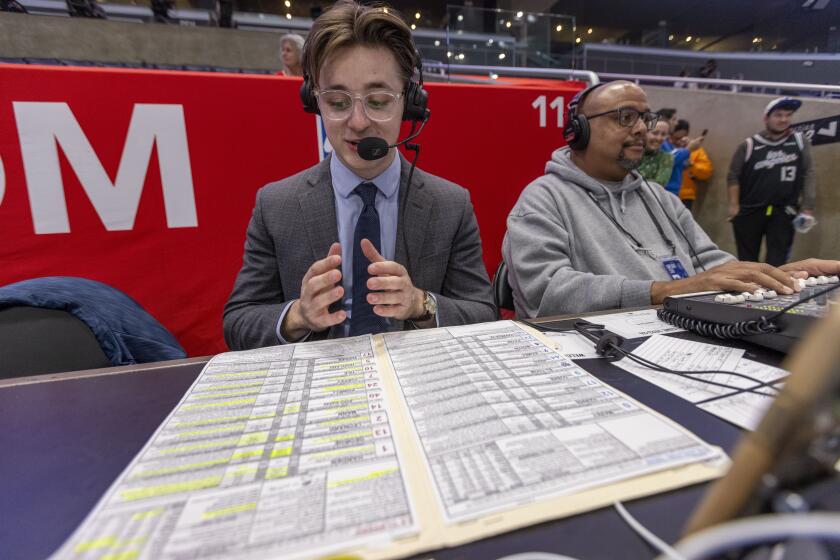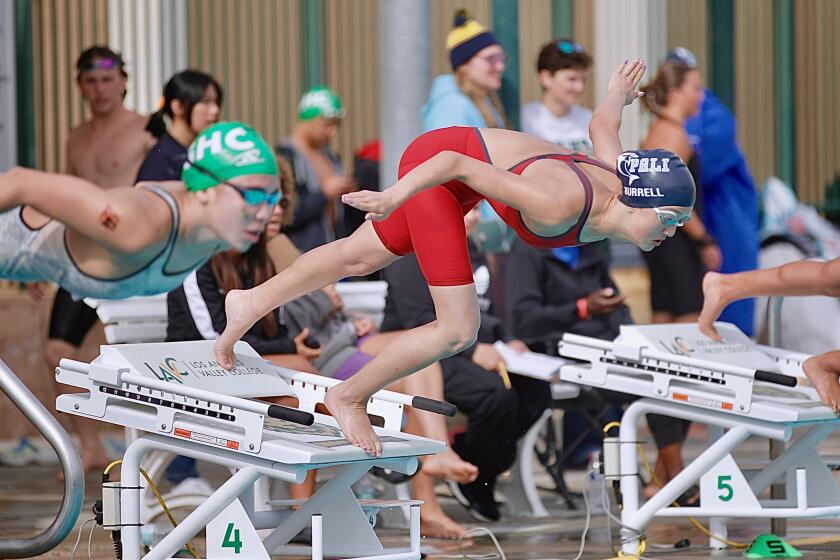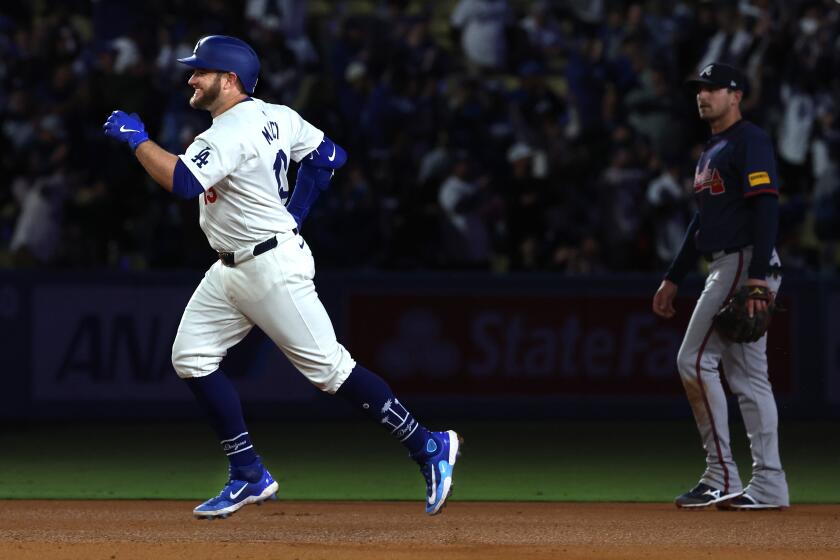Back pedaling
Lance Armstrong’s announcement Tuesday of his return to professional bicycle road racing after a three-year break raised more questions than it answered.
The biggest one is whether Armstrong can regain the competitive level that allowed him to win a record seven Tour de France titles from 1999 to 2005, the last marking the start of his retirement.
Armstrong, a cancer survivor, said in a statement released by his agent he was racing again “to raise awareness of the global cancer burden.” He gave no information about a race schedule or what team he would ride for, saying he would elaborate Sept. 24 at the Clinton Global Initiative in New York.
Armstrong had told Vanity Fair he was going to try to win an eighth Tour in an interview posted on the magazine’s website Tuesday.
It is widely assumed Armstrong will join the Astana team managed by Johan Bruyneel, who managed the Discovery Channel and U.S. Postal Service teams with which Armstrong won his seven titles. Astana was banned from the 2008 Tour de France after its leader, Alexander Vinokourov, was caught for blood doping at the 2007 race.
Bruyneel and an Astana team spokesman said Tuesday there were no plans for Armstrong to ride with Astana.
Robbie Ventura, a cycling coach who rode with U.S. Postal during the Armstrong era, says the biggest challenge facing the rider -- who turns 37 next week -- will be mental.
“Physically, Lance can definitely do it,” Ventura said. “The hardest part will be to go back to the mental discipline of training, eating and sleeping with 110% commitment. Snapping your brain back into a mode of being perfect all the time is difficult.”
Armstrong already has made one dramatically successful comeback, returning after battling testicular cancer that had spread to his lungs and brain. He was out of racing from the end of 1996 through the beginning of 1998 and nearly quit the sport soon after returning because he was “tired of the grind off the bike.”
Armstrong said his recommitment to the grind a month later was “more psychological, more mental than physical.”
The difference now is that Armstrong is not 27, as he was in 1998. But age may not be the factor in stage-race cycling it is in sports that demand explosiveness.
“If Lance was trying to win the [track] match sprint, I would say, ‘No way,’ ” Ventura said. “But the Tour de France isn’t about that. It’s about endurance. It’s about efficiency. And that can grow as you get older.”
Armstrong has maintained a fitness level by training for marathons -- New York in 2006 and 2007 and Boston in 2008, completing each in less than three hours. He also has spent a lot of time being a high-profile celebrity whose romantic interests, including Sheryl Crow and Kate Hudson, have kept him in the news.
“Lance is a different beast,” said U.S. Olympic track cycling coach Andy Sparks. “And you know he wouldn’t be signing up for this if he wasn’t confident about not embarrassing his legacy.”
Last month, Armstrong finished second to Dave Wiens in the demanding Leadville 100 (miles) mountain bike race, which starts at 10,200 feet, reaches 12,600 feet and includes 14,000 feet of climbing.
That performance undoubtedly encouraged Armstrong. That Wiens won at age 43 also may have assured him it was not vainglorious to return to elite road cycling at 37.
The oldest Tour de France winner was 36-year-old Firmin Lambot in 1922. Since 1964, only four winners have been over 30 -- but one was the 2008 winner, Carlos Sastre, 33, and another was Armstrong, 33 when he won his seventh straight.
“He has done great things for the sport of cycling over the years, has been a great athlete,” Pat McQuaid of Ireland, president of the International Cycling Federation, said in an e-mail. “It’s questionable if he can come back up to the same level, but only Lance knows that.”
--
Philip Hersh covers Olympic and international sports for The Times and the Chicago Tribune.
More to Read
Get our high school sports newsletter
Prep Rally is devoted to the SoCal high school sports experience, bringing you scores, stories and a behind-the-scenes look at what makes prep sports so popular.
You may occasionally receive promotional content from the Los Angeles Times.
